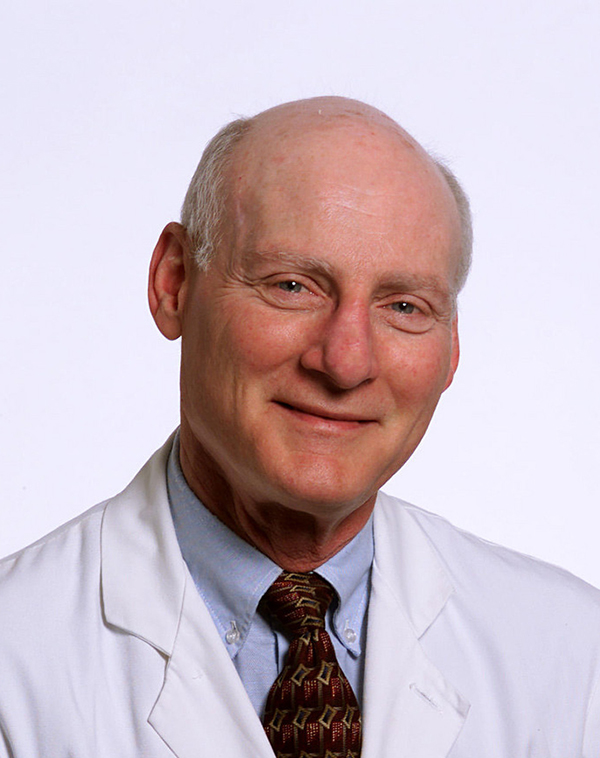MORE THAN 400,000 PEOPLE AGE 75 AND OLDER are expected to receive a cancer diagnosis this year in the United States alone. And as the baby boom generation ages, this number is expected to grow.

Harvey Jay Cohen Photo courtesy of Duke Medicine
In fact, researchers believe that by 2030 about 70 percent of all cancers will occur in people 65 and older, compared with about 60 percent today. This growth is predicted because cancer is largely an age-related disease: As people get older, their cells acquire more of the mutations that can lead to cancer. Yet relatively little attention has been paid to how older patients might experience cancer, or how they might respond differently to treatment.
To fill this gap, Harvey Jay Cohen focused his career on unraveling how cancer affects older patients, helping pioneer the discipline of geriatric oncology. Since his days as a medical student at the State University of New York Downstate Medical Center in Brooklyn in the 1960s, Cohen has published more than 250 articles and book chapters on geriatrics and oncology.
Cancer Today recently spoke with Cohen, 72, who has worked as a geriatrician and medical oncologist at Duke University, in Durham, N.C., for 40 years, about the special needs of older cancer patients and what can be done to make sure those needs are met.
Q: Who is considered “older” and in need of specialized care?
A: What geriatricians think of as “at risk” is age 75 and older, although there really isn’t a specific age cut-off. The functional status of a person is what matters—the presence of other illnesses and things like that.
Q: Is geriatric oncology a recognized specialty?
A: It’s not. Most geriatric oncologists are certified in both oncology and geriatrics, which are recognized specialties. It’s really only been in the past 10 or 15 years that geriatric oncology has achieved some awareness. Now there’s a small cadre of people with joint training specifically prepared to lead the charge from a clinical and research and education standpoint.
Q: Have older people typically been included in clinical trials and other research studies?
A: Historically, older people have been categorically excluded or excluded de facto from clinical trials: They either weren’t eligible because of age restrictions or failed eligibility because there were exclusions for other illnesses, which older people tend to have. Also, many people felt older people couldn’t tolerate or weren’t interested in clinical trials, and both of those things weren’t necessarily true. Older people are just as interested, but physicians think of it less. But that is changing.
Q: When it comes to treating cancer, are older people really that different?
A: There are definite physiologic differences. Many changes occur with the aging process that make older people different. There are changes in kidney and liver function and changes in metabolism that alter how long a drug stays in the body that definitely need to be thought about.
Q: Are the types of cancers they get different?
A: It’s interesting, but some cancers, like breast cancer, are actually less aggressive in older people. However, that is often counterbalanced by physiology. So, it doesn’t necessarily translate into better survival because even though the tumor characteristics are better, other illnesses and physiological limitations cancel that out. And some cancers are more aggressive. For example, local melanoma tends to behave much more aggressively in older people.
Q: Do older people have less social support than younger people?
A: One of the things we look at when we do comprehensive geriatric evaluations is the social aspect. That’s one of the reasons I recommend that older people be really proactive in requesting geriatric consultations, and asking about what support services, support groups and counseling are available. It’s really important to have support, whether that’s calling up people or getting hooked in with a church or other group.
Q: What else do geriatricians add?
A: There are many domains in which older people may have issues that standard medical assessments don’t take into account. There’s a tool called the comprehensive geriatric assessment, which incorporates social circumstances, behavior, evaluation of multiple drug interactions and things like that. Comprehensive assessments predict who might be vulnerable, and who might have a poor outcome, so we can pay attention and manage care better.
Q: So every older cancer patient should have a geriatrician?
A: There aren’t enough geriatricians around to take care of all the cancer patients. What geriatric oncologists are advocating are closer relationships between the primary care doctor and the oncologist, and then using tools like comprehensive geriatric assessments to look for patients who are vulnerable, and keeping geriatricians reserved for those who are in the vulnerable range.
Cancer Today magazine is free to cancer patients, survivors and caregivers who live in the U.S. Subscribe here to receive four issues per year.




